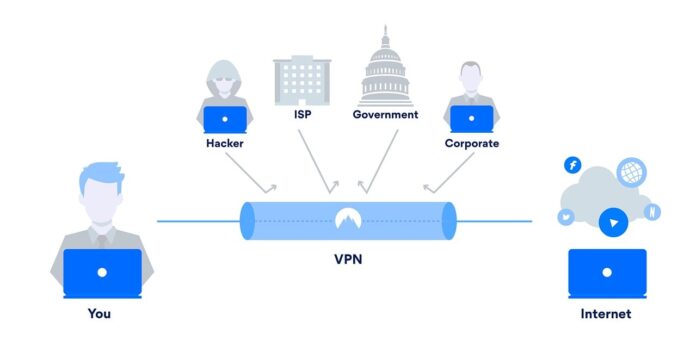As technology continues to evolve, cyber criminals learn new tricks. Businesses have witnessed serious data breaches, and home users are vulnerable also. In the comfort of your home, are you considering these threats seriously? The next time you lounge on your sofa casually surfing the internet, consider this – are you as safe as you think?
Assessing User Attitude
The world is in the midst of a digital revolution that has penetrated every corner, including homes. With the good comes the ‘not so good’ too – cyber threats.
Often home users underestimate the risks associating themselves with protected entities like children or elderly who are less tech-savvy. Though cybersecurity risks are real and profound, many fail to realise until it’s too late.
Because home users may not feel directly targeted as large corporations do, there tends to be a relaxed approach towards cybersecurity. But understand that hackers are not selective; they cast their nets wide to haul whatever fish they catch.
Threat Ignorance Reality
Ignorance is bliss, so they say. However, with cyber threats, ignorance is anything but.
You wouldn’t leave your house unlocked while leaving for work. Why then should your digital interactions be any different? Unfortunately, many people labour under the misconception that cyber-attacks couldn’t happen to them.
This mind-set needs immediate alteration. Remember, every single user interconnected via cyberspace could potentially become a victim of such attacks.
VPN.Coupons Perspective
Ensure that you adopt a proactive stand against cyber threats. To ensure a robust defence mechanism against these threats, consider equipping yourself with resources like VPN.Coupons that offer discounted protection.
VPN.Coupons provide services that protect your online privacy by hiding your IP address, therefore, making cyber-attacks more challenging to succeed.
Remember, exploring and utilising tools that enhance your cyber safety should be part of your digital lifestyle.
Feasible Protective Measures
Although cyberthreats seem intimidating initially, many feasible safeguards exist, not requiring technical prowess.
These include strong passwords, reliable antivirus software, prompt application updates, and shutting computers down when not in use. Diligently applying these significantly reduces cyber attack risks.
Building Cyber Hygiene
The incredibly fast pace at which cyber threats are evolving necessitates the importance of building ‘cyber hygiene‘. If digital cleanliness is practised on a daily basis, tackling hackers won’t seem like an impossible task.
Your daily routine must include skimming through emails for suspicious messages and avoiding clicking unknown links. Even watching what information you share on social media can help keep you safe.
Just as you wash your hands before eating, always ensure that your digital interactions are clean and secure.
Role of Strong Passwords
Passwords – a word frequently used and often ignored! Creating strong passwords isn’t difficult. However, it is a vital part of online security.
Avoid predictable passwords such as birth dates or names. Aim for a unique combination of upper and lower case letters, numbers and special characters when constructing passwords. Also get habituated to changing them frequently.
It’s your first line of defence. Hence, do not underestimate the power of a strong password.
Implications of Password Sharing
Sharing secrets with close friends seems harmless. But password sharing, however trusted the recipient, remains inadvisable digitally.
Declining such requests helps safeguard personal information from cybercriminals. With data breaches on the rise, protecting information requires keeping even friends at a slight distance.
In summary, user awareness and proaction are key to repelling cyberthreats and keeping attackers at bay.
The Phishing Factor
Phishing is a broad stroke technique used by cybercriminals. By casting a wide net they hope to capture a few unsuspecting victims. It’s named after the analogous fishing procedure, and it can be just as damaging as any cyber attack.
Phishing generally involves tricking you into parting with your sensitive information. The easiest way to avoid falling prey to these schemes is by being aware of suspicious emails or messages that ask for personal details.
Never click on the links in such mails or text messages. Instead, inform your service provider about it immediately and let them handle the situation.
Dealing With Malware
Home users regularly encounter malware through various vectors like downloads or websites. Once inside systems, malware jeopardises data integrity, privacy, and operations.
Robust antivirus programs, caution around downloads and emails, and system monitoring offer optimal malware defence. Additionally, remain updated on the latest threats and tactics. Forewarned fosters forearmed.
Importance of Regular Updates
Software updates may feel disruptive, especially mid-task. However, outdated applications harbour more security holes for exploitation.
Updates don’t merely enhance features but patch vulnerabilities against newer threats too. Always install available updates rather than indefinitely delaying them. Keep all devices and software current for better security.
Scanning Regularly
Like medical check-ups, computers need regular scans to catch potential infections early, preventing further harm.
Reliable antivirus tools facilitate systematic scans. Schedule them for minimal disruption, like when away from home. Vigilance begets safety.
Utilising VPNs for Security
Virtual Private Networks (VPNs) provide additional security by masking IP addresses, hiding online activities from snoopers.
Particularly useful on public networks, reputable VPNs maintain robust privacy and encryption. While no single solution offers full protection, VPNs significantly bolster cyberdefenses.
Creating Backups Regularly
Even extensive safeguards sometimes fail against sophisticated threats. Maintaining comprehensive data backups helps avoid irrecoverable loss in such events.
Backup destinations like external drives or cloud services allow restoring duplicate files if needed. Automating backups saves the trouble of remembering manual repetitions.
Investing in redundancies offers insurance against unexpected disasters.
Securing Home Wi-Fi
Home Wi-Fi networks allow access to all connected devices, tempting targets for attackers. Proper security can thwart unauthorised entry.
Using strong and unique passwords and enabling network encryption shields transmitted data from prying eyes. Tracking all connected devices and keeping them updated adds further layers of defence.
Vigilance regarding home network safety helps maintain comprehensive digital security.
Dangers of Public Networks
No doubt public networks provide great convenience, but substantial risks accompany it. Open accessibility makes them hotspots for cybercrime.
Only use public networks when necessary, always through a VPN to protect data from eavesdroppers. Avoid accessing sensitive information like financial or banking services while on such networks altogether.
The Threat to Smart Devices
Internet-connected smart appliances promise greater convenience but often overlook security. Their proliferation furnishes more avenues of attack.
Secure smart devices by changing default credentials, disabling unused features, monitoring connections, and maintaining updates. Remember, one compromised IoT device endangers the entire network!
E-mail Safety Practices
Email seems harmless, right? Yes – until one falls into the wrong hands. Email is frequently used for phishing attacks and spreading malware by hackers.
Never click on links or download attachments from unrecognised senders. Be wary of any emails that ask for personal information or require immediate action on your part.
To sum up – let your email be an instrument of communication, not a source of trouble!
Final Thoughts
While the digital era has indeed revolutionised people’s lives in numerous ways, it’s equally vital for home users to recognize the cyber threats accompanying these advancements. Having a relaxed attitude towards them may prove to be costly. It’s critical you understand and incorporate feasible protective measures to ensure your digital safety. Attaining peace of mind is only possible by being an alert, informed, and responsible netizen.
Help keep news FREE for our readers
Supporting your local community newspaper/online news outlet is crucial now more than ever. If you believe in independent journalism, then consider making a valuable contribution by making a one-time or monthly donation. We operate in rural areas where providing unbiased news can be challenging. Read More About Supporting The West Wales Chronicle


























